Reflexology Support for Menopause
Menopause is a natural process and every woman’s experience of it is unique. Many women find reflexology beneficial in supporting them through this natural transition in their lives. Reflexology encourages deep relaxation, helping to reduce stress, aiding sleep and improving your sense of wellbeing.
Menopause
As a reflexologist, my aim is to support women through all stages of their lives and undertaking specialist training in the field of perimenopause and menopause has given me the skills and knowledge to support women as they take a proactive approach to this next chapter.
Menopause is a natural process, however, it can be a pretty tough time for many women. In the UK it is estimated that 80% of women do experience some symptoms, with the most common being hot flushes and night sweats. The good news is that there are things that we can do to help, including using reflexology and following the Five Pillars for Healthy Menopause as outlined by reflexologist Sally Earlam (creator of training course Reflexology for Menopause) and briefly explained below.
On average we spend a third to half of our lives post menopause, so we need to embrace this as a time for us to decide who we want to be for the rest of our lives and make plans for how we can achieve it.
We may need to make some lifestyle changes to ensure that we take a positive approach to healthy ageing. Seeking some extra support and choosing reflexology can be a wonderful way to smooth this journey.
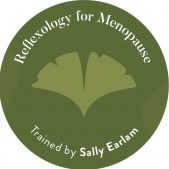
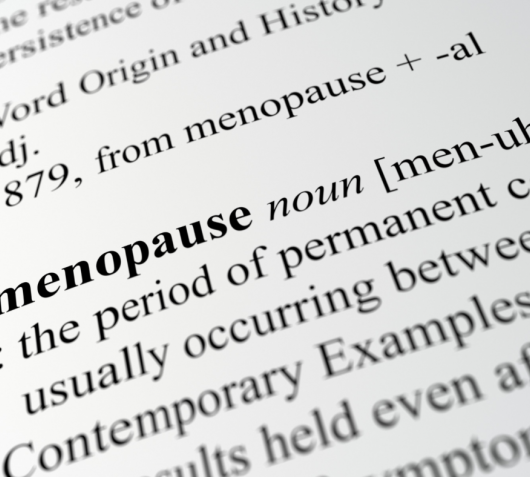
Reflexology and Menopause
Reflexology is a deeply relaxing treatment and can help to reduce stress, aid sleep and improve your overall sense of well-being. Menopause can negatively impact all of these areas and worsen the symptoms you experience.
To offer you the best support, I will want to hear about how the menopause is effecting you and what symptoms you are experiencing so that I can provide reflexology treatments designed specifically for you. You can be assured that I will provide you with a safe space and a non-judgemental listening ear and I can share knowledge if you want to know more about making lifestyle changes.
How Often Do I Need To Have Reflexology?
As with all complementary therapies there is a cumulative effect, so if you are able to have a few treatments close together you should see quicker results.
Ideally, a series of weekly or fortnightly treatments are recommended with the aim to continue with monthly top-ups. However, even monthly treatments can be beneficial.
Reflexology is not a quick fix and making a commitment to booking a few treatments will give you the opportunity to experience the full effect of how you will benefit from reflexology.
Everybody responds differently to reflexology - the only way to know how you will benefit is to try it!
Research
There are so many symptoms associated with menopause that research is tricky. However, there are some studies showing that reflexology is beneficial for some menopausal symptoms:
(1) The effects of reflexology on sleep disorders in menopausal women. Maryam Asltoghiri, Zehra Ghodsi. Pro edit - Social and Behavioral Sciences, Volume 31, 2012, Pages 242-246
(2)The effects of reflexology applied to women aged between 40 and 60 on vasomotor complaints and quality of life. Gozuyesil E, Baser M. Complement Ther Clin Pract. 2016 Aug;24:78-85
(3) The effects of reflexology on depression during the menopause: A randomized controlled clinical trial. F Mahdavipour et al. Complementary Therapies in Medicine, Volume 47, 2019,
All the information on this page is quoted from Reflexology and the Five Pillars for Healthy Menopause by Sally Earlam
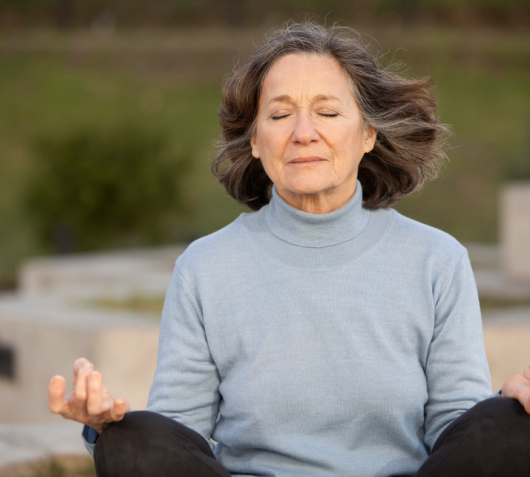
The 5 Pillars for Healthy Menopause

Nutrition
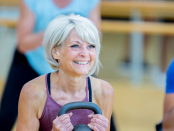
Exercise
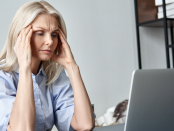
Manage stress

Good quality sleep

Find your purpose
As oestrogen levels fall, the body becomes less effective at breaking down carbohydrates, which can increase fat storage, and our metabolism also slows which makes it harder to lose weight. What we eat can make hot flushes/ and or night sweats worse so eating the right foods can make you feel better.
Exercise is believed to be one of the most important things that anyone can do to improve longevity and physical and emotional health. There are many benefits of taking regular aerobic and weight-bearing exercise during peri/menopause to help reduce symptoms, protect against disease and help us age well. Do the exercise you enjoy because your body deserves it!
Falling hormone levels in menopause make us more susceptible to anxiety and/ or depression so it’s very important to take care of our mental health. Make time for yourself and build in daily activities to support your mental and emotional wellbeing. This will have a positive effect on reducing your stress levels.
Sleep is essential for overall health and well-being and it is well documented that too little has detrimental effects on our physical and mental health. In the menopause transition, sleep disturbance is common due to hot flushes and night sweats and other symptoms thought to be caused by falling hormone levels. Creating a relaxing bedtime routine can help to improve the quantity and quality of your sleep.
Menopause can come along at a time when other things in your life are changing. Maybe your children are leaving home or your career doesn’t feel as fulfilling as it once did? Change can often feel challenging but the menopause can provide an opportunity for women to pause and reframe their lives; who do you want to be for the next phase of your life? Where can you find your flow? What lights you up?
We use cookies to allow us to better understand how the site is used. By continuing to use this site, you consent to this policy. Click to learn more
